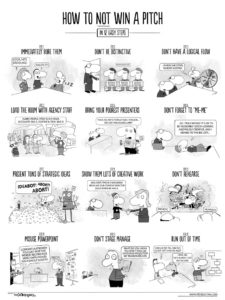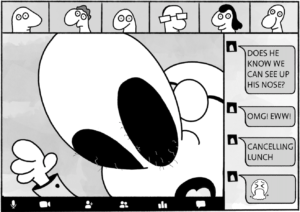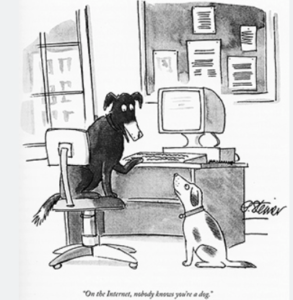Pitching
Is Your Advertising Agency Pitching Too Much?
Is Your Advertising Agency Pitching Too Much? Maybe You Need To Say No!
 Here is an excerpt from my book on advertising agency pitching and presenting. This tidbit emphasizes the importance of not (allow me to repeat myself) not pitching every account that whistles. You can’t afford it. It costs too much cash, time, energy, and agency staff pain (BURNOUT!). Pitching too much causes one more problem. You will reduce your business development ROI.
Here is an excerpt from my book on advertising agency pitching and presenting. This tidbit emphasizes the importance of not (allow me to repeat myself) not pitching every account that whistles. You can’t afford it. It costs too much cash, time, energy, and agency staff pain (BURNOUT!). Pitching too much causes one more problem. You will reduce your business development ROI.
There is lots more in “The Levitan Pitch. Buy This Book Win More Pitches.” You can buy the paperback and eBook on -> Amazon.
Yes, No, Maybe?
Before you embark on a new pitch, you should be asking yourself one extremely important question…
Should we be pitching this account?
I know what you are thinking… Levitan’s kidding right? We’ve made it through the RFI and RFP stages, and now he wants us to ask if we should even be going to the finals.
It’s still ok to say “no”, and now is the time to take a deep breath and review a go-no-go decision. You are about to spend a great deal of time and money. Are you sure that you should go through the next step? Are your colleague’s groans getting louder? Looking in any way ambivalent about the pitch will not help your pitch team feel good about charging into it. Passionless pitches don’t win.
Pitch or not is usually one of the most difficult decisions agency management has to make. There is a good chance that you think that you’ve already answered this question if you participated in an RFP that led to your selection as a shortlist candidate. I believe that even if you’ve performed a sound decision-making process, now is the time to stop to determine if this potentially expensive pitch is worth the time, effort, and human and cash costs.
[Read more…] about Is Your Advertising Agency Pitching Too Much?
The Advertising Agency New Business Pitch
How To Run An Advertising Agency New Business Pitch
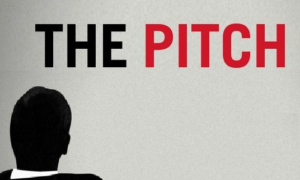 A high school teacher friend asked me to help her with a study plan about how an advertising agency manages the advertising agency new business pitch process. She asks her students to run their sales pitch for an imaginary client. I thought, what the heck? I’ll share some of my thoughts with you. If it’s good for high schoolers, it should work for y’all.
A high school teacher friend asked me to help her with a study plan about how an advertising agency manages the advertising agency new business pitch process. She asks her students to run their sales pitch for an imaginary client. I thought, what the heck? I’ll share some of my thoughts with you. If it’s good for high schoolers, it should work for y’all.
Why me? Well, I did write the definitive book on ad agency new business pitching which included a detailed look at the advertising agency pitch process. What to do and what not to do and how doing the what not to do will cost your agency money, time, staff pain, and heartbreak. Somehow this teacher found my book. I guess Google works.
A Very Simplified Look At The Advertising Agency Pitch Process
Before I start, I have to say that the current way many clients select an agency, as in having multiple agencies pitch against each other, is too time-consuming and costly for both the client and the agencies. I’ve seen large pitches drag on for weeks and months. One would think that a savvy client should be able to look hard at the agency’s expertise, past work, case histories, culture plus a couple of conversations to make a decision. Of course, pricing is also a factor, especially if the client’s procurement department partially runs the pitch. A department focussed on costs – not necessarily an assessment of agency skill-sets.
OK, nuff said about the inefficiency of many pitches.
There is no such thing as a ‘standard’ pitch. Some clients are large and others small. Some large theoretically sophisticated clients have no process, and some small clients are super organized. Here is a look at what is often the process.
Some clients are looking for the whole enchilada (an agency that will do everything from branding to social media) and some clients are just looking for one specific need – often a project. For example, a new name, and logo. Some clients want to work with category experts (as in needing a healthcare specialist) and some are looking for a great ‘creative’ agency.
Quick FAQ.
I asked ChatGPT to summarize this blog post for agency leaders in a hurry (or just the ADHD types). Here is what I got.
- How do you define a winning agency pitch strategy?
-
- It hinges on showcasing unique creative ideas and demonstrating how these can solve the client’s specific problems, backed by data and case studies.
- What should be the focus during pitch preparation?
-
- Research the client’s business, understand their market challenges, and develop tailored solutions that highlight your agency’s unique value proposition.
- What are the critical elements of an effective pitch presentation?
-
- Clear articulation of the client’s problem, your proposed solution, proof of your agency’s capability, and a compelling story that connects emotionally.
- How can an agency differentiate its pitch from competitors?
-
- By emphasizing creativity, insight-driven strategies, and a deep understanding of the client’s industry, going beyond surface-level solutions.
- What steps are crucial after delivering a pitch?
-
- Proactive follow-up, offering to clarify doubts, providing additional information as requested, and maintaining a positive, engaging relationship regardless of the outcome.
How Does The Client Find Agencies?
Here is my master list on getting found and contacted:
You get a referral from a happy current or past client. Hopefully, your agency has a referral strategy to help make this happen.
You get a referral from a friend or family member. For example, my nephew was once the publisher of Men’s Vogue – he introduced me to someone who became a great client. Maybe your mother plays bridge with the mother of New Balance’s marketing director.
Word of mouth (WOM). People have heard of you inside the general marketing universe. Somehow, you’ve gotten people talking.
Your agency has won a prestigious marketing award. The right third-party recognition is a good thing. No, do not enter every ward show.
The press writes about you, your agency or asks for your expert opinion. I have a friend at Adweek who occasionally asks for a quote. This has been a good thing for my brand awareness.
You know how to use social media to get the good word out and make connections. That means you use one or just a couple of blogging, Instagram, LinkedIn, YouTube, TikTok; Facebook, you podcast: or utilize whatever the latest social media platform that makes sense for your audience.
You advertise your services. Yes, imagine an agency that actually uses advertising.
You wrote a well-targeted advertising or marketing book that gains industry fame – like my: The Levitan Pitch. Buy This Book. Win More Pitches.
You are an expert and the specific categories that you rule (tactical or business categories) know about you.
You speak at the right conference, were in that smart podcast or write for trade publications. I used to write for HubSpot and ‘borrowed’ their enormous audience.
You know how to do what is often called Account Based Marketing. This means that you have created a list of the type of clients that your agency ‘should have’ and you contact them directly. Intelligently and gently. Often you will send them hard to resist, I call it unignorable, insights.
A professional advertising agency search consultant put you on the prospective client’s list. This is a very good thing. It should not be an accident that the consultant knows about you.
[Read more…] about The Advertising Agency New Business Pitch
Using ChatGPT And Grammarly For Blogging
Yes, I Am Using ChatGPT And Grammarly For Blogging
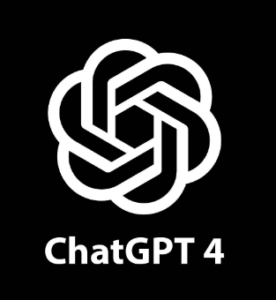 I wanted to see how ChatGPT and Grammarly would work for me to have them help write a summary of my book, “The Levitan Pitch: Buy This Book. Win More Pitches.” The bottom line is that ChatGPT and Grammarly for blogging — works.
I wanted to see how ChatGPT and Grammarly would work for me to have them help write a summary of my book, “The Levitan Pitch: Buy This Book. Win More Pitches.” The bottom line is that ChatGPT and Grammarly for blogging — works.
A simple process: I prompted ChatGPT-4 to summarize the book and then loaded it into Grammarly to check for any lingo improvements and to detect any ‘plagiarism.’ I then rewrote elements for clarity and to use my own voice and style, and here you go.
By the way, buy this best seller (aren’t all books best sellers LOL???). In this case its true. OK, onto ChatGPT and Grammarly for blogging.
“The Levitan Pitch: Buy This Book. Win More Pitches.” by Peter Levitan is a guide for advertising agencies of all types to understand and refine the art of pitching to clients. While I can’t reproduce the entire book, I can provide a high-level summary of its key points and takeaways:
- Importance of Pitching: Levitan stresses that the pitch is the moment of truth for agencies. It’s the culmination of a lot of hard work and is the point where the agency can make or break a potential business opportunity. He also stress that agencies DO NOT pitch everything. have a strategy and a set of criteria for who to go after.
- Understanding the Client: Before making a pitch, it’s crucial to understand the client’s business, their needs, their customers, and their industry landscape. This deep understanding will enable you to tailor your pitch to be more effective and resonate with the client. Please, do the research. Determine the client’s pain points and make sure you understand their FUD – fears, uncertainties and doubts.
- Differentiation: With many agencies vying for the same client, differentiation is key. Levitan suggests that agencies find their unique selling proposition (USP) and communicate it effectively to stand out from the competition. Be unignorable!!!!
- Pitch Team Selection: Only some are great pitchers, and that’s okay. Selecting a pitch team based on strengths, presentation skills, and compatibility with the client’s team is essential. Plus, train your pitchers all year long. Not the day before.
- Preparation and Practice: The best pitches are not impromptu; they are the result of thorough preparation and practice. This ensures that the presentation goes smoothly and that all potential questions or concerns from the client can be addressed. Practice. Please.
- Engagement and Storytelling: The way information is presented can make a huge difference. Engaging the client through storytelling, providing relevant examples, and drawing them into a vision of a successful partnership can be very effective.
- Handling Objections: It’s not uncommon for clients to have reservations or objections. Levitan provides strategies for addressing these concerns gracefully and turning potential weaknesses into strengths.
- Closing the Deal: The final steps in a pitch are crucial. Levitan offers techniques for sealing the deal and ensuring that the client feels confident in their decision to work with your agency.
- Post-Pitch Analysis: After the pitch, it’s beneficial to analyze what went well and what could have been done better. This reflection will lead to continuous improvement and more successful pitches in the future. I always made a deal with the clients i pitched… they had to give me post pitch feedback.
- Real-world Examples: Throughout the book, Levitan draws from his vast experience in the advertising world, providing real-world examples, anecdotes, and case studies to illustrate his points.
- In essence, “The Levitan Pitch” is a comprehensive guide for agencies to refine their pitching process, from understanding the client’s needs to effectively closing the deal. Levitan’s insights, drawn from decades of experience, offer valuable advice for both new and seasoned agencies looking to win more business.
So, do you agree???? Was my using ChatGPT and Grammarly for blogging a good idea?
Oh, have you bought my new book yet? — “How To Build A Kick-Ass Advertising Agency”
Improve Your Advertising Agency Brand
The Power of Personal Chemistry and the Advertising Agency Brand
 I’ve talked a lot about how a stand-out, unignorable advertising agency brand can make or break your agency’s ability to attract the attention of a new client. Plus, the personal side of an agency brand can determine if you can win or lose a pitch.
I’ve talked a lot about how a stand-out, unignorable advertising agency brand can make or break your agency’s ability to attract the attention of a new client. Plus, the personal side of an agency brand can determine if you can win or lose a pitch.
Yo People Power
There seems to be one aspect of pitching that keeps coming up over and over and rises to the top of almost everyone’s list. That is the idea that agencies ultimately win or lose based on interpersonal chemistry and corporate culture alignment. How do I know this? I’ve asked a dozen advertising agency consultants about what works and does not in a pitch since so many agencies sound and look alike.
People win pitches.
Manage Personal Chemistry
My fear with the chemistry thing is that it can appear to be something that is just nature vs. something that can be managed and created. There is a school of thought that says that you either gel with the prospect or you don’t. Sorry, Advertising agency Business Development Director, it’s all about a managed chemical reaction, and that’s why it is called chemistry.
Yikes. After preparing a smart, tight presentation, are we ultimately at the mercy and vagaries of some mysterious and unmanageable human thing? Pheromones, anyone?
I refuse to think that we don’t have any control. I don’t like the idea that after the long and expensive journey from an agency’s business development outreach to RFIs, RFPs, and then on to the final presentation, it all comes down to fate: the client either digs you, or they don’t. It just sounds way too passive.
So what can we do to build chemistry?
Let’s start with what not to do. Do not make any of the mistakes discussed in the early chapters of my The Levitan Pitch. book. Think of it this way: if you are twenty-something and you are going out to find your mate, you shower and dress accordingly. If you are a surfer, you wear Hurley’s. If you work on Wall Street, you wear Prada. Once you’ve defined your target prospect and aligned persona, you know that you need to do the obvious: make eye contact and act interested in the other person’s story. You will try to avoid any conversation-killing words. Even better, you will lean in and listen and make adjustments to your side of the conversation to demonstrate your interest. You won’t bore them with endless stories that are all about you. You will flatter them.
OK, you get it. Avoid the things that you can control. Yes, I believe we can.
But can we manufacture and/or control interpersonal chemistry to drive the advertising agency brand? Or, is it just up to some form of automatic business-related pheromones?
New business chemistry gets even more complicated when you introduce the idea that chemistry must be built between two groups in addition to individuals. Sure, some pitches are won because of an agency’s charismatic leader. However, in most cases, it is your team that is being evaluated. In order to develop chemistry between two separate groups (clients and agency presenters), the presenter group, as a whole, needs to demonstrate an understanding of the client group’s challenges, a commonality of purpose, matching emotional commitment (passion), empathy for shared problems, and a common language. Ultimately you will build rapport with the client group if they think that you are all in sync, as in on the same wavelength, especially in understanding their business issues. This is one of the reasons that you always need to remember that the pitch is much more about them, not you.
Two key words to keep on the top of your mind and manage are values, as in having and demonstrating shared values, and trust, as in building confidence in your agency’s integrity and reliability. Building trust is particularly important in service pitches where the client will be committing to a personal relationship. Trust is more easily given between two similar groups; groups that have already established commonalities. You are like me, therefore I understand you better and can trust you more easily.
Cultural alignment is also critical. Assuming that there isn’t a total disconnect between the client’s values and yours (this is something you should have figured out back at the RFP stage), cultural alignment can be managed. To get there, make sure ahead of any meeting that you read up on the client’s Mission and Vision Statements, review their brand values, and understand their corporate goals. If the client is a public company, read their annual report. It provides a comprehensive overview of the company’s business and financial condition and its dreams.
Find commonalities between the client and your agency, and subtly reinforce these in the meeting.
An Advertising Agency Brand Example – Be Delightful
As I mentioned earlier in the book learn everything about the client you want.
My ex-client Sara Lee’s Mission Statement states that they want: “To simply delight you… every day.” Surely your agency could find a very creative way to mirror the idea of “delight” in your pitch and even (very sparingly) use the word “delight” to reinforce rapport.

